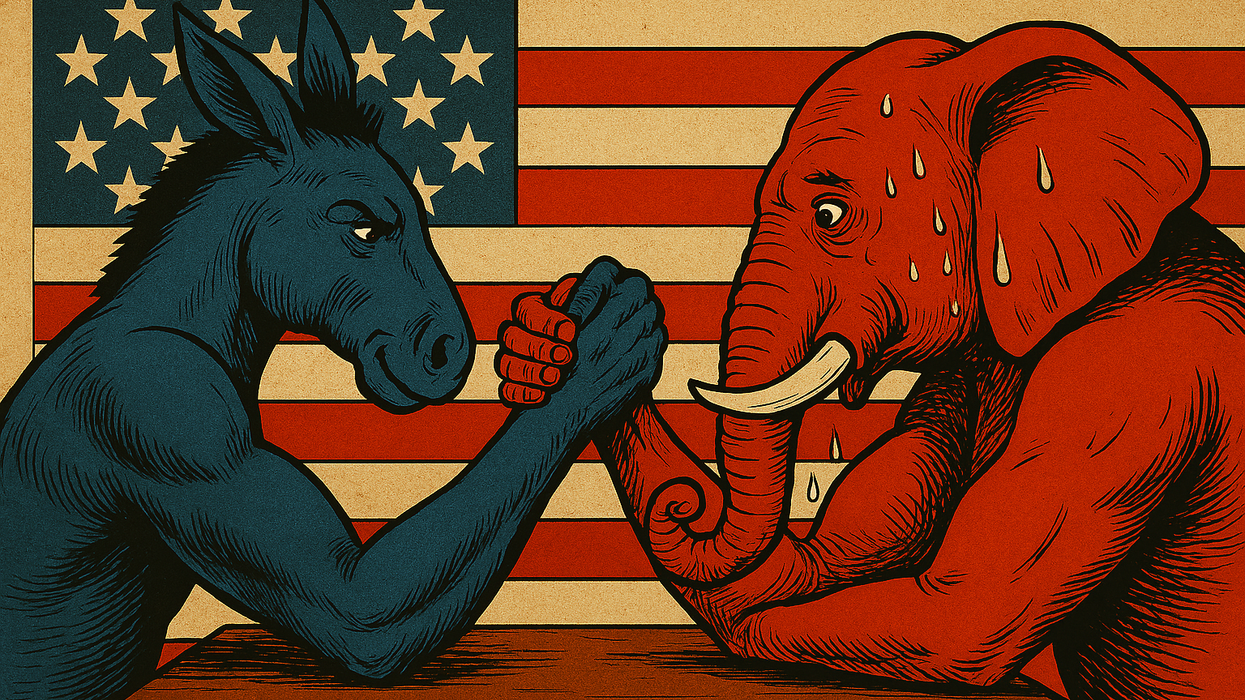Democrats are quietly building momentum in the 2025 election cycle, notching two key legislative flips in special elections and gaining ground in early polling ahead of the 2026 midterms. While the victories are modest in number, they signal a potential shift in voter sentiment — and a brewing backlash against Republican-led redistricting efforts.
Out of 40 special elections held across the United States so far in 2025, only two seats have changed party control — both flipping from Republican to Democrat.
In Iowa Senate District 35, Democrat Mike Zimmer, president of the Central DeWitt School Board, defeated Republican Katie Whittington with 52% of the vote, flipping a district that Donald Trump carried by 21 points in 2024.
In Pennsylvania Senate District 36, Democrat James Andrew Malone, mayor of East Petersburg, narrowly edged out Republican County Commissioner Josh Parsons by less than 1%, marking the first time Lancaster County has sent a Democrat to the state Senate since 1879.
These wins, though numerically modest, signal potential voter backlash against GOP-led policies and redistricting efforts.
According to Bolts, August is the busiest month for competitive specials, with four districts in play where the 2024 presidential margin was within 15 points.
Viet Shelton, spokesperson for the Democratic Congressional Campaign Committee, told Newsweek, “Democrats are confident they will re-take the majority powered by an aggressive message focused on fighting for lowering prices and holding Republicans and Trump accountable for their record of broken promises”.
In a rare mid-decade redistricting push, Texas Republicans are attempting to redraw the state’s congressional map to add five new GOP-leaning seats — a move widely criticized as a partisan power grab. The proposed map, approved by the Texas Senate on August 12, would significantly dilute the voting power of Black and Latino communities, with districts like Rep. Al Green’s in Houston seeing the Black voting-age population drop from 39% to just 11%.
“This mid-decade redistricting isn’t about fair representation—it’s about politicians picking their voters instead of voters choosing their leaders,” said the Senate Democratic Caucus in a statement. The controversy has sparked a national redistricting arms race, with states like California and Florida signaling plans to redraw their own maps in response.
California Governor Gavin Newsom vowed to retaliate, telling MSN, “If Texas wants to rig the maps, California will make sure they pay a price. They want to steal five seats? We’ll match and secure more — and turn the tables on their entire strategy”.
This tit-for-tat redistricting war could reshape the congressional map before 2026, with both parties seeking to maximize safe seats. But the strategy risks alienating swing voters and escalating legal battles over gerrymandering and minority representation.
Recent national polls show Democrats leading Republicans on the generic congressional ballot. A CNBC survey conducted in early August found Democrats ahead by 5 points — 49% to 44% — while a YouGov/Economist poll showed a 6-point lead.
“Democrats are outperforming where the average out-party has been at this point in the cycle over the last five midterms. If the election were held today, they’d be favored to win the House," wrote G. Elliott Morris, Strength In Numbers.
Still, analysts caution that midterms are historically unfavorable to the party in the White House. With President Trump’s approval ratings slipping, Democrats hope to replicate the 2018 “blue wave” — but redistricting could blunt their gains.
Hugo Balta is the executive editor of the Fulcrum and the publisher of the Latino News Network.




















Trump & Hegseth gave Mark Kelly a huge 2028 gift